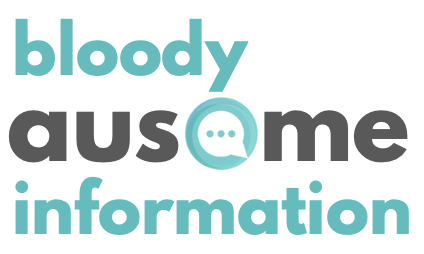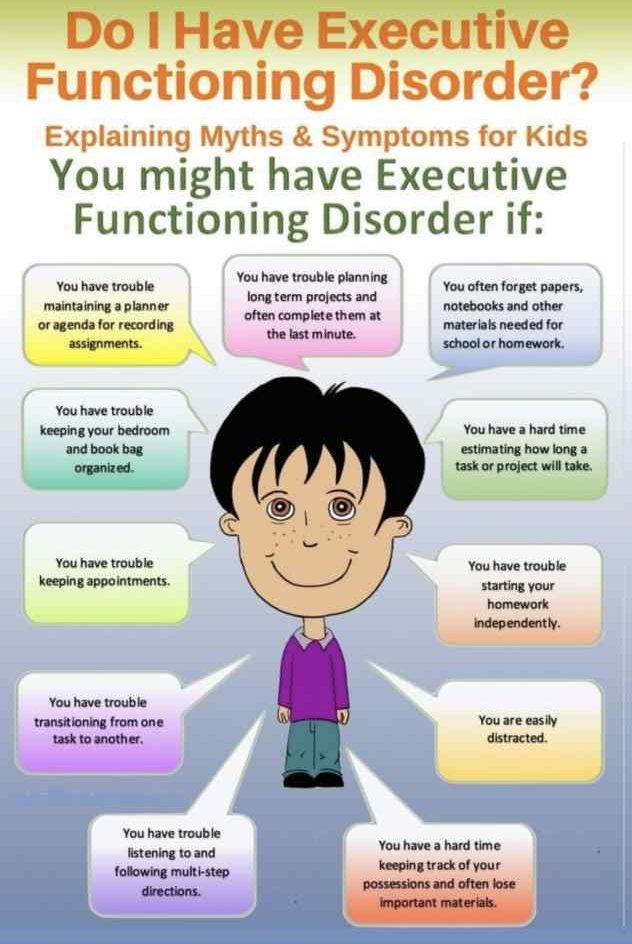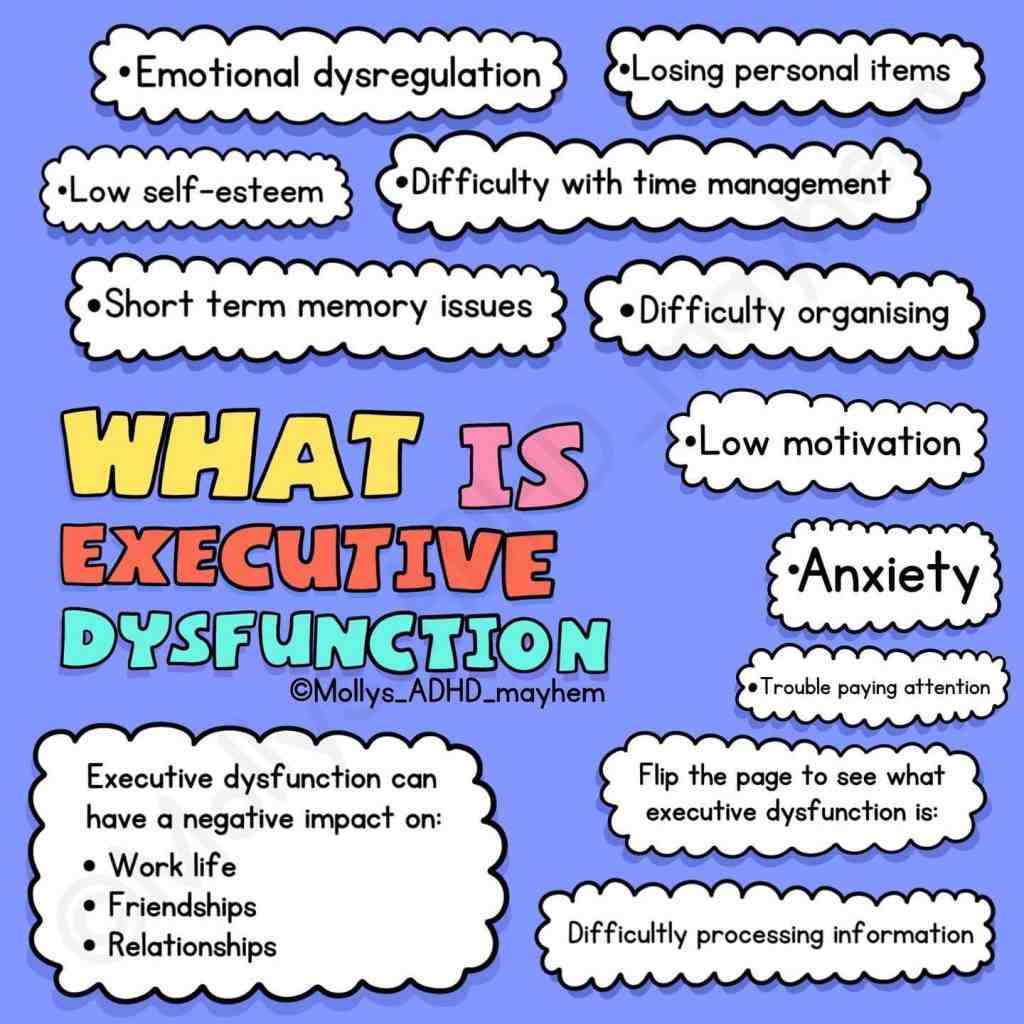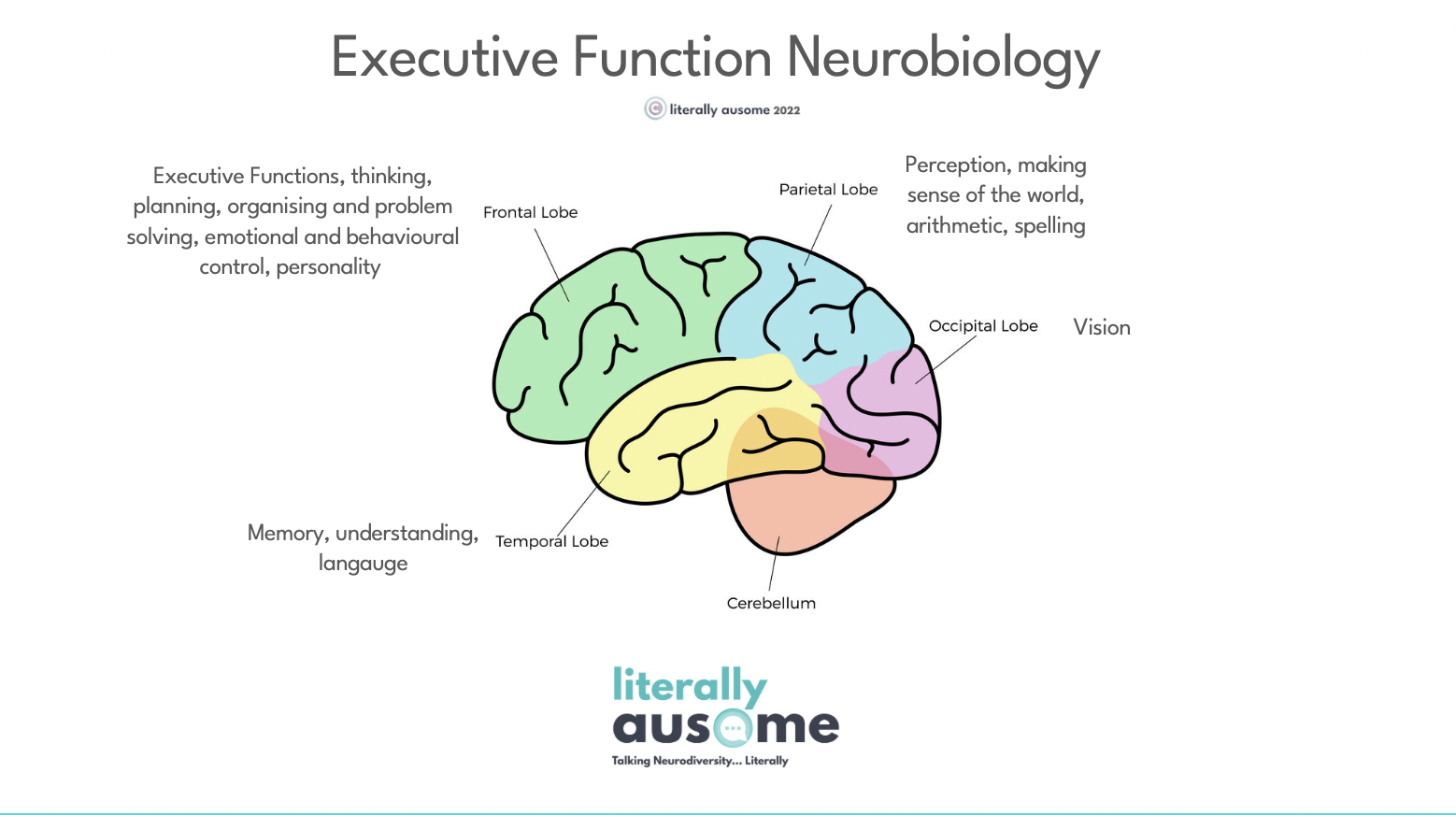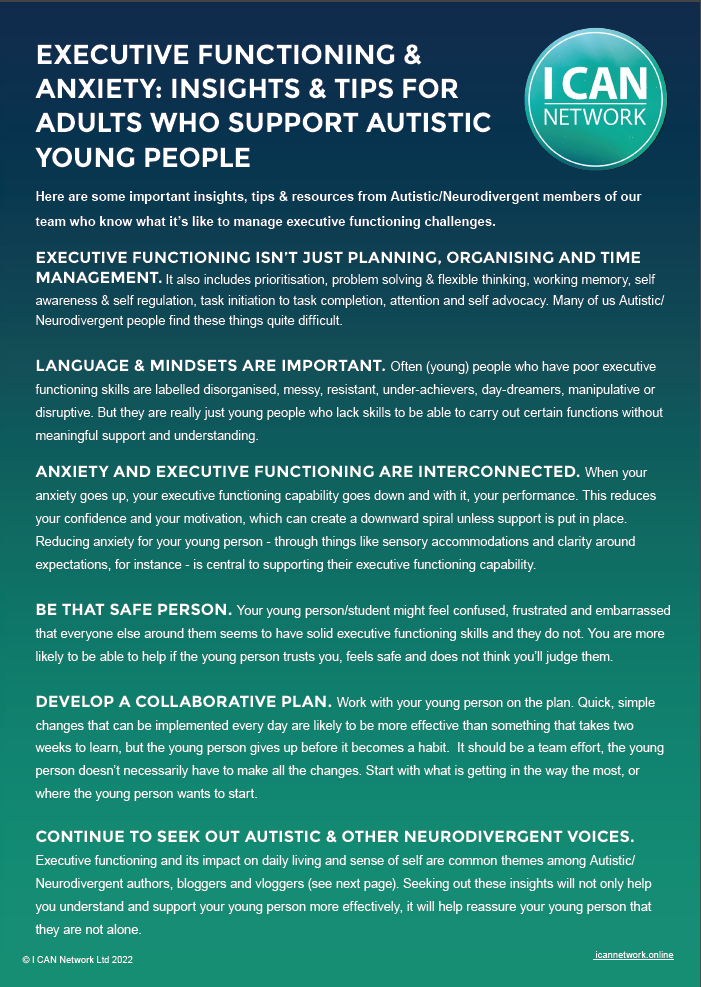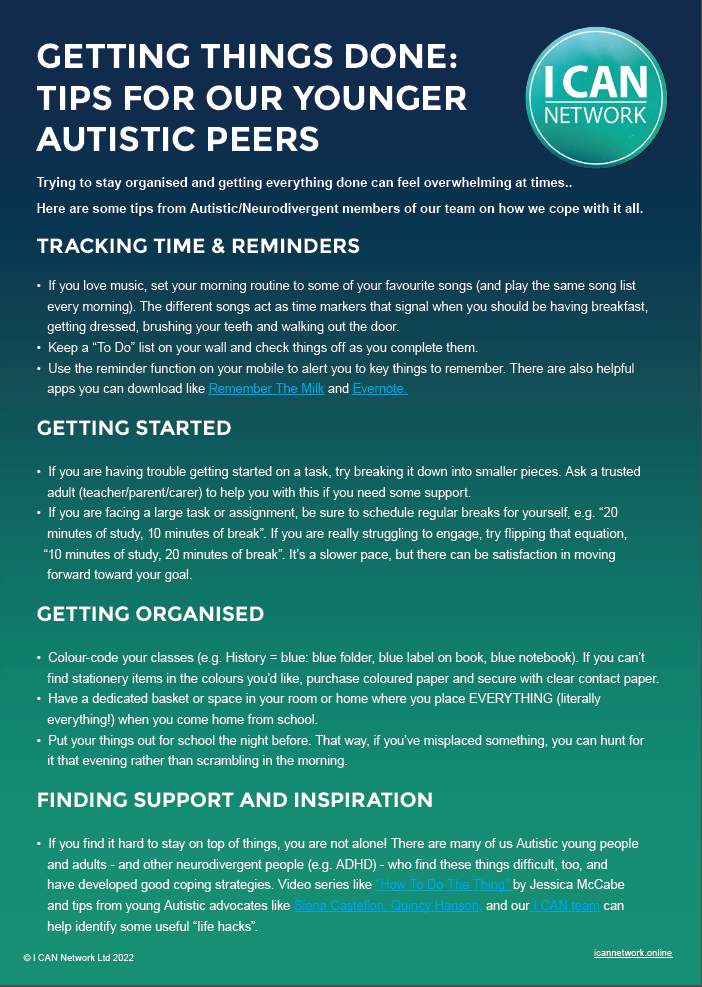Sections
What is Executive Functioning?
Executive Function is described as ‘the CEO of the brain’, where mental skills consolidate to help us get things done.
When children struggle with these executive functioning skills, it has a direct impact on their learning. Many children have issues with processing information and executive functioning.
The three main areas of executive function are:
- Working memory
- Cognitive flexibility (also called flexible thinking)
- Inhibitory control (which includes self-control)
Executive function is responsible for a number of skills, including:
- Paying attention
- Organising, planning and prioritising
- Starting tasks and staying focused on them to completion
- Understanding different points of view
- Regulating emotions
- Self-monitoring (keeping track of what you’re doing)
Executive Dysfunction and Neurological Conditions
Often Autistic children and those with ADHD and/or learning difficulties have tremendous difficulties starting, planning and completing work and are likely to procrastinate to avoid tasks.
This can result in disruptive, challenging and avoidant behaviours and difficulty with emotional regulation which appears to be a behavioural issue, but in reality, is a neurological one.

